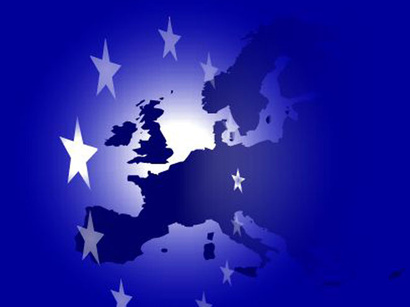Europe might struggle to keep lights on in winter

By Bloomberg
Europe may struggle to keep the lights on as temperatures drop as the switch to greener sources of energy complicates the balance between supply and demand in the region. The inconvenience of brownouts, though, should have the welcome effect of forcing governments to address their attitudes toward both nuclear power and fracking for shale gas.
About 7 percent of the world's population lives in Europe, yet regional spending of 500 billion euros ($625 billion) on renewable energy investment between 2004 and 2013 accounts for half of total global spending on wind farms, solar installations and the like. Renewable sources now provide more than 14 percent of the Europe's energy, up from 8.3 percent in 2004, according to a report published this week by consulting firm Cap Gemini.
The bigger the contribution from renewables, though, the more difficult it is to manage power-transmission grids. And that shift to greener energy coincides with disruptions in a host of Europe's more traditional power-generation methods.
Governments are committed to curbing carbon emissions from coal-burning plants, and there's a post-Fukushima aversion to nuclear power. Utilities have reduced output from natural-gas fired plants in response to Europe's economic slowdown, and the region's aging thermal generators are being retired from service. Global politics is also a threat; 30 percent of Europe's gas comes from Russia, and about half of that travels through Ukraine.
The result, according to Cap Gemini, is a market in need of massive investment:
This winter, security of supply is already threatened in certain European countries. The present situation of chaotic wholesale markets, with negative wholesale prices and increasing prices for retail customers, is likely to prevail in coming years. By 2035, Europe will need to invest $2.2 trillion in electricity infrastructure alone. With the present uncertain situation and the difficult financial environment for utilities, these investments could be delayed and security of the electricity supply could be at risk in the long term also.
Fracking remains almost taboo in Europe. France has banned it, with Environment Minister Segolene Royal calling it a "very dangerous technique" and the benefits of shale gas a "mirage." Germany said in July it would ban fracking at depths of less than 3 kilometers (1.9 miles), which effectively outlaws the practice for most companies. A July joint report by Scientists for Global Responsibility and the Chartered Institute of Environmental Health said U.K. rules governing shale-gas exploration don't do enough to safeguard public health.
While environmental considerations remain an obstacle to shale-gas developments in Europe, the energy-cost benefits achieved in North America are unequivocal:
Source: European Commission
As a result, European companies look longingly across the ocean at the burgeoning energy independence of the U.S., and complain that Europe's drive toward a greener future puts them at a competitive disadvantage. According to Andrew Bainbridge, who chairs a U.K. lobbying group called the Major Energy Users' Council:
Whatever progress had been made in providing for Britain's energy future has ground to a halt. The sad fact remains that, as coal-fired power stations continue to be phased out, little is coming forward to replace them.
The U.K.'s National Grid agreed this week to pay three of the country's utilities to keep three power plants running this winter as it tries to avoid brownouts. The buffer of extra capacity the country has to meet peak demand will shrink to 4.1 percent, from 6.7 percent in June. Three years ago, the cushion between supply and electricity demand was as high as 15 percent, according to David Hunter, an analyst at energy consultancy Schneider Electric:
The rapid shrinkage of this 'safety zone' highlights the pressure that our energy infrastructure is under. The grid is being continually squeezed and this winter is going to be significantly less comfortable than previous years.
Following the March 2011 meltdown at Japan's Fukushima Dai-Ichi installation, Germany shuttered nine of its nuclear power plants and said it would close the remaining eight by 2022. France, which relies on nuclear energy for about three-quarters of its power, aims to reduce that to 50 percent by 2025. The U.K.'s winter power worries are exacerbated by the closure of four of Electricite de France's nuclear reactors in Britain since August for safety investigations.
Some progress on adding supply is being made. This month, the U.K. won approval from the European Commission for the nation's first nuclear project in two decades, a 24.5 billion pound ($23 billion) power station at Hinkley Point in southwest England, to be built by Electricite de France. The government is providing bond guarantees to finance the plant.
None of the current methods for powering homes and businesses is perfect. Burning coal is dirty and bad for the environment; the shale lobby hasn't convinced either the public or lawmakers that fracking doesn't cause earthquakes and poison the water supply; and nuclear power produces toxic waste that endures for centuries.
What's clear, though, is that European governments need to have a serious conversation about how they plan to guarantee energy security in the coming years. Laudable progress on setting tougher carbon-emission targets and making power greener is vulnerable if the lights start to go out.
